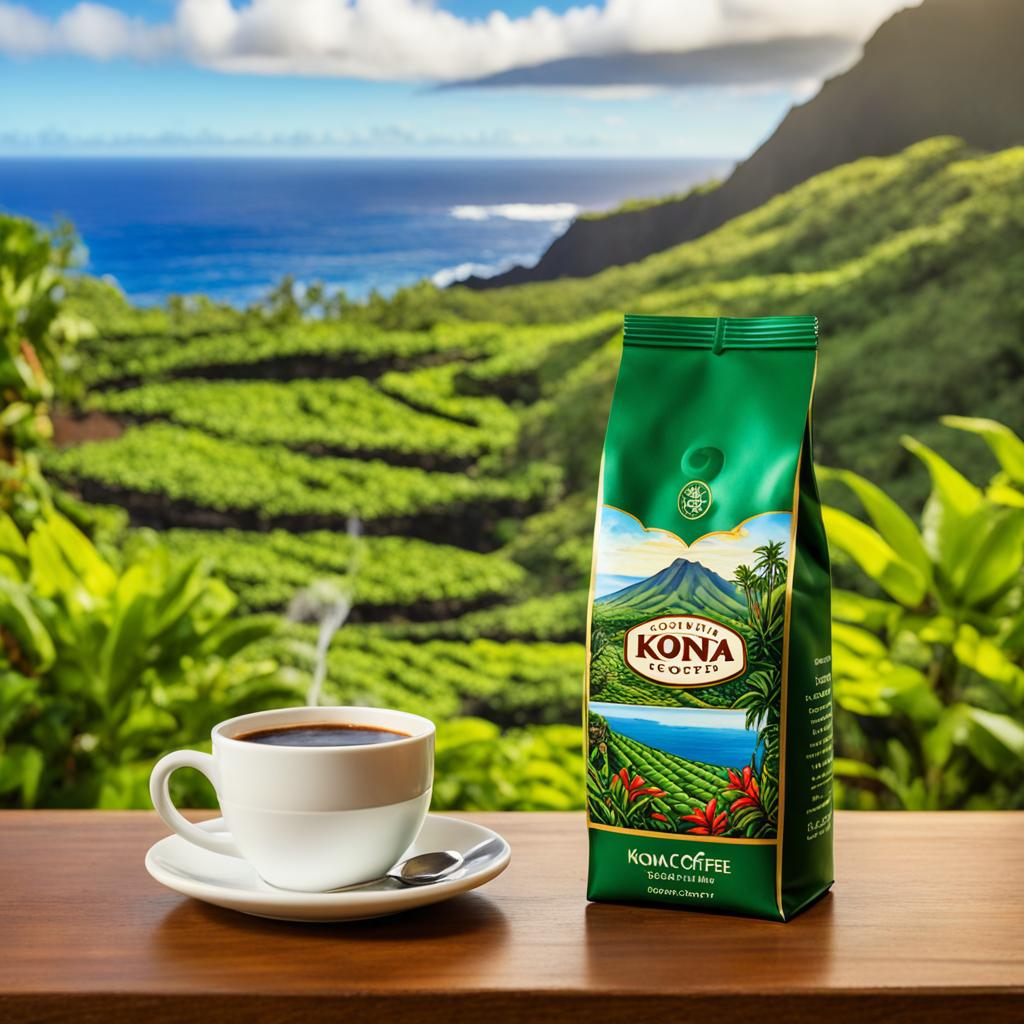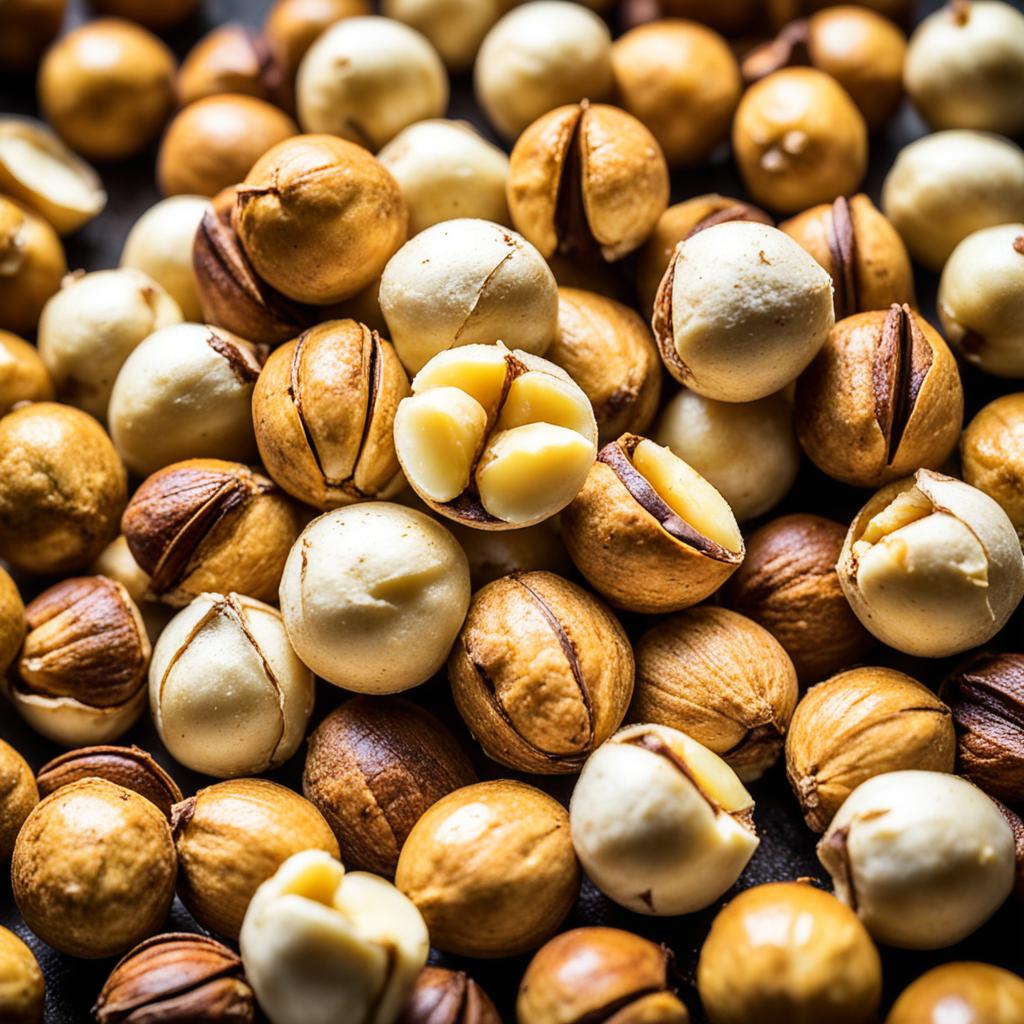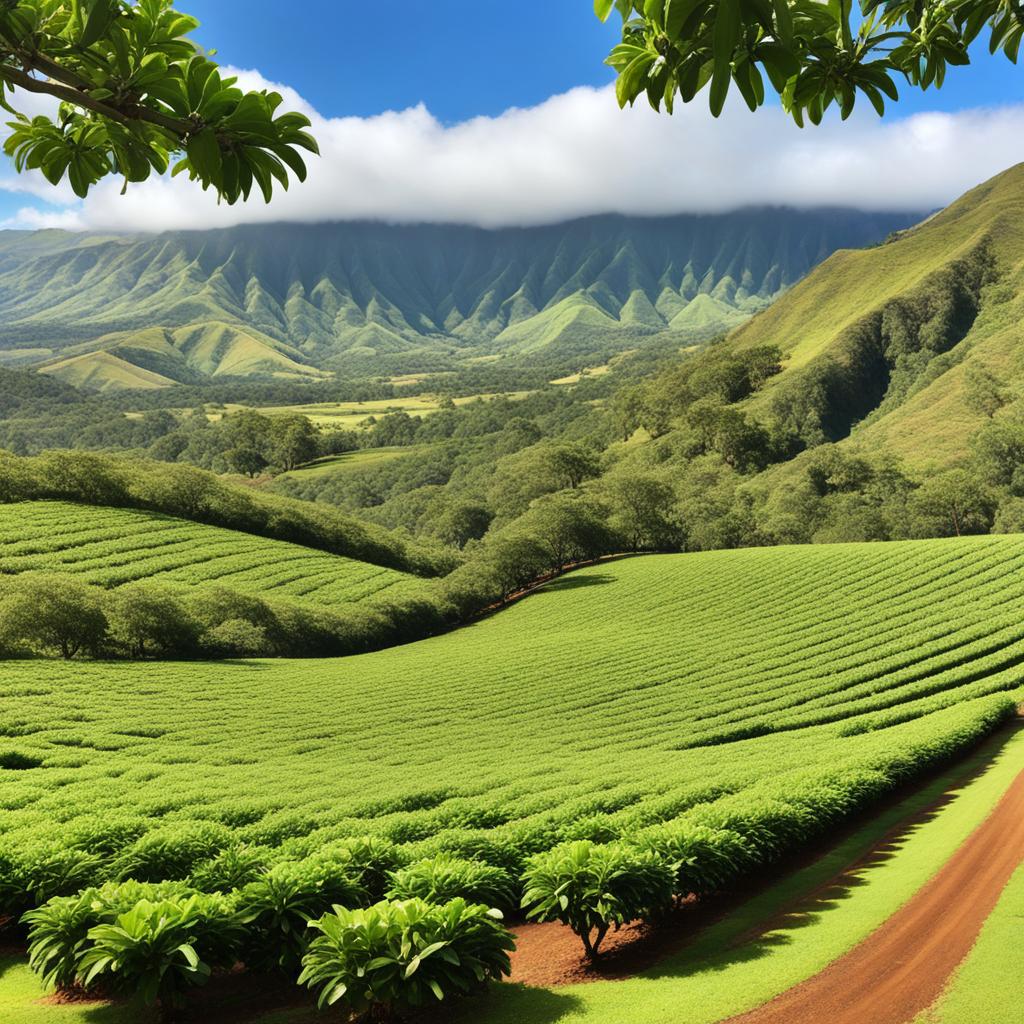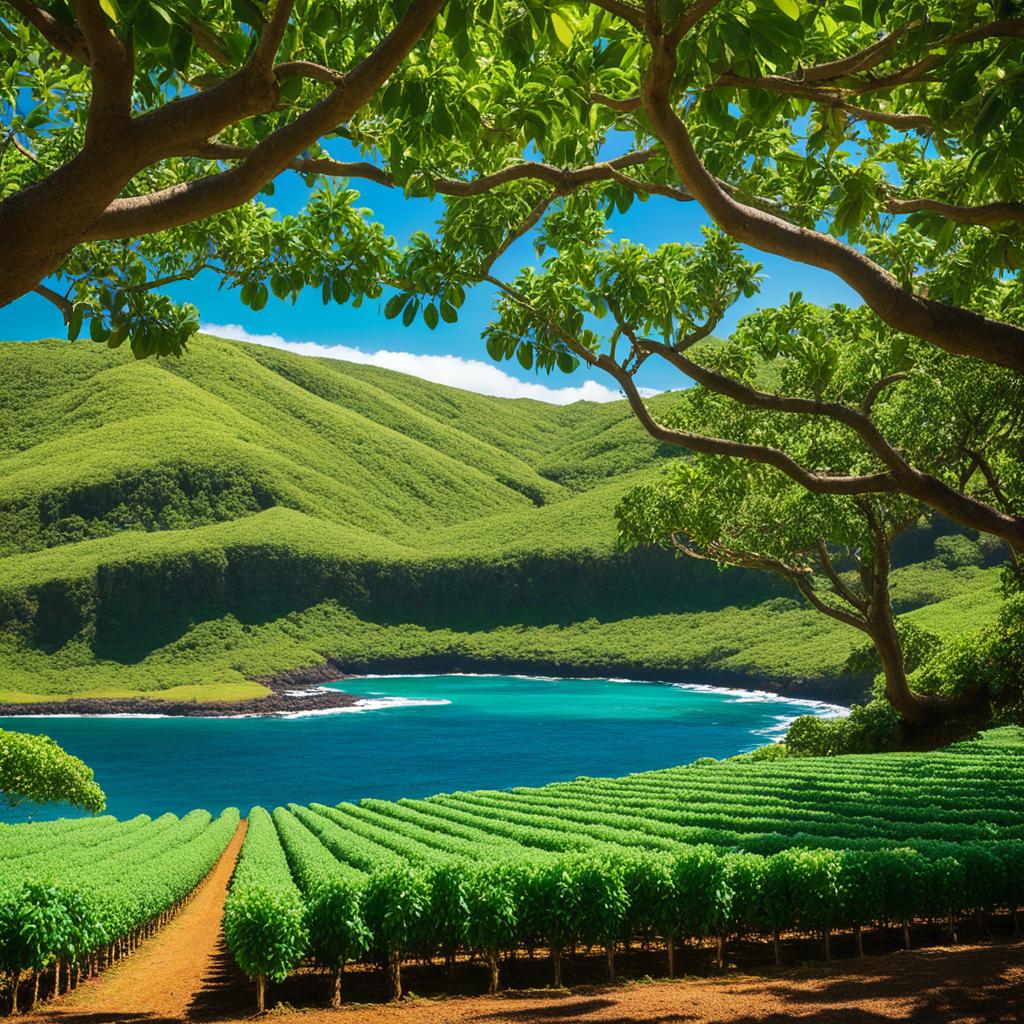Have you ever wondered what happened to Roseanne Barr after her hit sitcom ended? Well, it turns out she ventured into an entirely different field: farming. Yes, you heard that right! Roseanne Barr, the iconic comedian, purchased a sprawling macadamia nut farm in beautiful Hawaii. But the question is, does she still own and operate this unique farm? Let’s find out!
Roseanne’s Nuts: The Reality TV Show
“Roseanne’s Nuts” was a reality TV show that offered viewers a unique glimpse into the life of Roseanne Barr and her venture into managing a macadamia nut and livestock farm in Hawaii. The show, which aired on Lifetime from July to September 2011, followed Roseanne, her partner Johnny Argent, and her son Jake Pentland as they navigated the challenges and joys of running a farm.
During its run, “Roseanne’s Nuts” consisted of 16 half-hour episodes that showcased the daily operations of the macadamia farm, including tending to the nut trees and caring for the animals. The show also highlighted Roseanne’s interactions with her partners, guests, and the local community.
Fans of the show were treated to appearances by notable celebrities, like Bonnie Bramlett, Michael Fishman, Phyllis Diller, and Sandra Bernhard, who added an extra level of entertainment and intrigue to the series.
While “Roseanne’s Nuts” generated interest and curiosity among viewers, it received mixed reviews from critics. Despite the show’s following and its unique premise, “Roseanne’s Nuts” was ultimately canceled after its first season, leaving fans wanting more.
Throughout the series, the beauty of the Hawaiian landscape and the intricacies of managing a macadamia farm were showcased, providing an engaging and educational experience for viewers.
If you’re interested in getting a taste of the reality show, here’s a snippet from one of the episodes showcasing Roseanne Barr on her macadamia farm in Hawaii:
Stay tuned for the next section of our article, where we explore the price and demand for Kona coffee in Hawaii.
The Price and Demand for Kona Coffee

Kona coffee, exclusively grown in the Kona region on the Big Island of Hawaii, is a highly sought-after variety known for its unique flavor profile. Its limited production and exceptional quality contribute to its higher price compared to other coffees in the market. The price of Kona coffee can vary between $16 and $35 per pound, depending on the vendor and the specific blend.
However, it is important to note that not all coffee labeled as “Kona” is 100% pure Kona coffee. There are blends available that include multiple coffee varieties. It is crucial to verify the authenticity of the Kona coffee you purchase to ensure you are getting the genuine product.
| Kona Coffee Prices | Price Range (per pound) |
|---|---|
| Lower Range | $16 |
| Higher Range | $35 |
To meet the growing demand for Kona coffee, farmers in the Kona region continue to cultivate and produce this exceptional coffee bean. The unique flavor, combined with the prestige of its origin, has resulted in increased demand not just locally, but also among coffee enthusiasts around the world. As a result, the price of Kona coffee has remained relatively high, reflecting its desirability and limited supply.
Next, let’s explore the delightful flavor and cost of macadamia nuts, another treasure from the Hawaiian islands.
The Delightful Flavor and Cost of Macadamia Nuts

Macadamia nuts are a true delicacy known for their delicious and buttery flavor. These nuts are primarily grown in the beautiful islands of Hawaii, making them a sought-after treat for both locals and visitors alike. In fact, Hawaii is the largest exporter of macadamia nuts in the world, supplying 95% of the global crop.
The premium cost of macadamia nuts can be attributed to several factors that contribute to their unique taste and texture. Firstly, macadamia trees take a significantly longer time to start producing nuts compared to other nut trees, typically ranging from 7 to 10 years. This extended growth period results in a limited supply, which drives up the cost of these delectable treats.
Cracking macadamia nuts can also be quite challenging, further adding to their value. The extremely hard shell requires specialized machinery or carefully executed manual techniques to open, making the process labor-intensive and time-consuming. This labor investment is reflected in the final price of macadamia nuts.
However, the exceptional flavor of macadamia nuts is what truly sets them apart. These nuts possess a rich, buttery taste that delights the palate and leaves a lasting impression. Whether enjoyed on their own as a satisfying snack or incorporated into various recipes, macadamia nuts bring a unique and indulgent flavor to any dish.
In Hawaii, a popular package size for macadamia nuts is an 11oz. bag, which typically costs around $11.99. On the mainland, a slightly larger one-pound bag can cost approximately $16.99. The higher cost of macadamia nuts is a testament to their quality, flavor, and the care taken in their cultivation and processing.
| Package Size | Price in Hawaii (approx.) | Price on the Mainland (approx.) |
|---|---|---|
| 11oz. bag | $11.99 | N/A |
| 1 pound bag | N/A | $16.99 |
Visitors to Hawaii have the opportunity to explore macadamia nut farms, where they can witness the meticulous cultivation process and even sample different flavors of these delightful nuts. Whether you choose to enjoy them as a souvenir, gift, or a personal treat, macadamia nuts are sure to satisfy your cravings and leave you craving more of their extraordinary flavor.
Visiting Macadamia Nut Farms in Hawaii
Hawaii is home to several macadamia nut farms that offer tours and the opportunity to sample different flavors of macadamia nuts. Whether you’re a nut enthusiast or simply looking for a unique experience during your visit to Hawaii, exploring these farms should definitely be on your to-do list.
On Oahu, there is a visitor-friendly macadamia nut farm in Kaaawa, where you can immerse yourself in the beauty of the location while indulging in the delicious flavors of macadamia nuts. The farm offers guided tours that provide insight into the cultivation and processing of the nuts. You’ll also have the chance to taste a variety of flavors and even purchase some to bring home as souvenirs or gifts.
While Roseanne Barr’s 40-acre macadamia nut farm on the Big Island is not open to visitors, there are other options for exploring macadamia nut farms in this region. Two popular destinations are the Maunaloa Visitor Center and the Hamakua Nut Visitor Center. These centers offer informative tours that take you through the entire process of macadamia nut production, from growing and harvesting to processing and packaging. You’ll also get the chance to taste different varieties of macadamia nuts and discover the unique flavors each has to offer.
| Macadamia Nut Farms in Hawaii | Location | Tours | Flavor Samples |
|---|---|---|---|
| Visitor-Friendly Farm in Kaaawa, Oahu | Kaaawa, Oahu | Guided tours available | Yes |
| Maunaloa Visitor Center | Big Island | Informative tours | Yes |
| Hamakua Nut Visitor Center | Big Island | Interactive tours | Yes |
Visiting these macadamia nut farms not only allows you to learn about the fascinating process of macadamia nut production, but it also gives you the chance to taste and discover the unique flavors that make these nuts so special. It’s an experience that combines education, deliciousness, and the beauty of Hawaii’s agricultural landscape.
The Legacy of “Roseanne’s Nuts”

Although “Roseanne’s Nuts” was only on the air for one season, it left a lasting legacy for Roseanne Barr and her macadamia farm. The show showcased the unique lifestyle and challenges of running a farm in Hawaii, and it brought attention to the importance of organic farming and sustainable agriculture. While the show was met with mixed reviews, it provided an insight into Roseanne’s passion for farming and the macadamia industry in Hawaii.
Legacy of “Roseanne’s Nuts”
“Roseanne’s Nuts” may have had a short on-air lifespan, but its impact and legacy continue to reverberate. The reality TV show not only entertained audiences but also shed light on the realities and intricacies of operating a macadamia farm in Hawaii. Through the show, viewers gained a deeper appreciation for the hard work, dedication, and challenges that go into organic farming and sustainable agriculture.
Roseanne Barr’s commitment to her macadamia farm and her advocacy for organic farming practices have made a lasting impression on the agricultural community. Her willingness to share her experiences and knowledge with the public has helped raise awareness about the importance of supporting local, sustainable agriculture.
The show’s legacy extends beyond the entertainment industry. It has inspired many individuals to explore organic farming and pursue their own agricultural endeavors. Roseanne’s dedication to her macadamia farm has become a testament to her commitment to environmental sustainability and the promotion of locally sourced, organic products.
The Impact of “Roseanne’s Nuts” on the Macadamia Industry
“Roseanne’s Nuts” not only showcased Roseanne Barr’s journey as a macadamia farmer but also shined a spotlight on the macadamia industry in Hawaii. Through the show, viewers got a glimpse into the cultivation, harvesting, and processing of macadamia nuts, as well as the challenges faced by farmers in the industry.
The increased visibility brought about by “Roseanne’s Nuts” has had a positive impact on the market for macadamia nuts. The demand for these delicious, buttery nuts has grown, and consumers have become more aware of the unique flavor and high quality of macadamia nuts produced in Hawaii.
The legacy of “Roseanne’s Nuts” continues to ripple through the macadamia industry, inspiring more farmers and entrepreneurs to enter the market. Roseanne Barr’s passion and dedication to her macadamia farm have played a significant role in promoting the growth and sustainability of the macadamia industry in Hawaii.
| Legacy of “Roseanne’s Nuts” | The Impact of “Roseanne’s Nuts” on the Macadamia Industry |
|---|---|
| – Showcased the lifestyle and challenges of running a farm in Hawaii | – Brought attention to the cultivation and processing of macadamia nuts |
| – Raised awareness about organic farming and sustainable agriculture | – Increased demand for macadamia nuts produced in Hawaii |
| – Inspired individuals to explore organic farming and sustainable agriculture | – Encouraged more farmers and entrepreneurs to enter the macadamia industry |
The Treasures of Kona Coffee and Macadamia Nuts in Hawaii
When it comes to unique and prized culinary delights, Hawaii has two treasures that stand out – Kona coffee and macadamia nuts. These gourmet products are synonymous with the islands and have garnered widespread recognition for their exceptional quality and flavors.
Kona coffee, known for its smooth and rich taste, is grown exclusively in the fertile volcanic slopes of the Kona region on the Big Island of Hawaii. The combination of the region’s microclimate and rich volcanic soil creates the perfect conditions for cultivating this exceptional coffee. With its distinct flavor profile and meticulous production process, Kona coffee has gained a reputation as one of the finest and most sought-after coffees in the world.
Another gem from Hawaii is the macadamia nut, celebrated for its buttery texture and exquisite taste. Hawaii’s unique tropical climate provides an ideal environment for growing macadamia trees, enabling the production of these delectable nuts. Hawaii is the leading global exporter of macadamia nuts, and its reputation for producing premium-quality nuts has made them a beloved treat worldwide.
When visiting Hawaii, exploring the coffee and nut farms is a must. Take a journey to the verdant slopes of Kona and witness firsthand the meticulous process of cultivating and harvesting coffee beans. Engage your senses as you sample the aromatic brews and learn about the intricacies of coffee production. Likewise, a visit to a macadamia nut farm offers a chance to learn about the cultivation, processing, and roasting techniques that create these delightful nuts. And of course, you can indulge in tasting the different flavors and experiencing the unique qualities of Hawaii’s macadamias.


